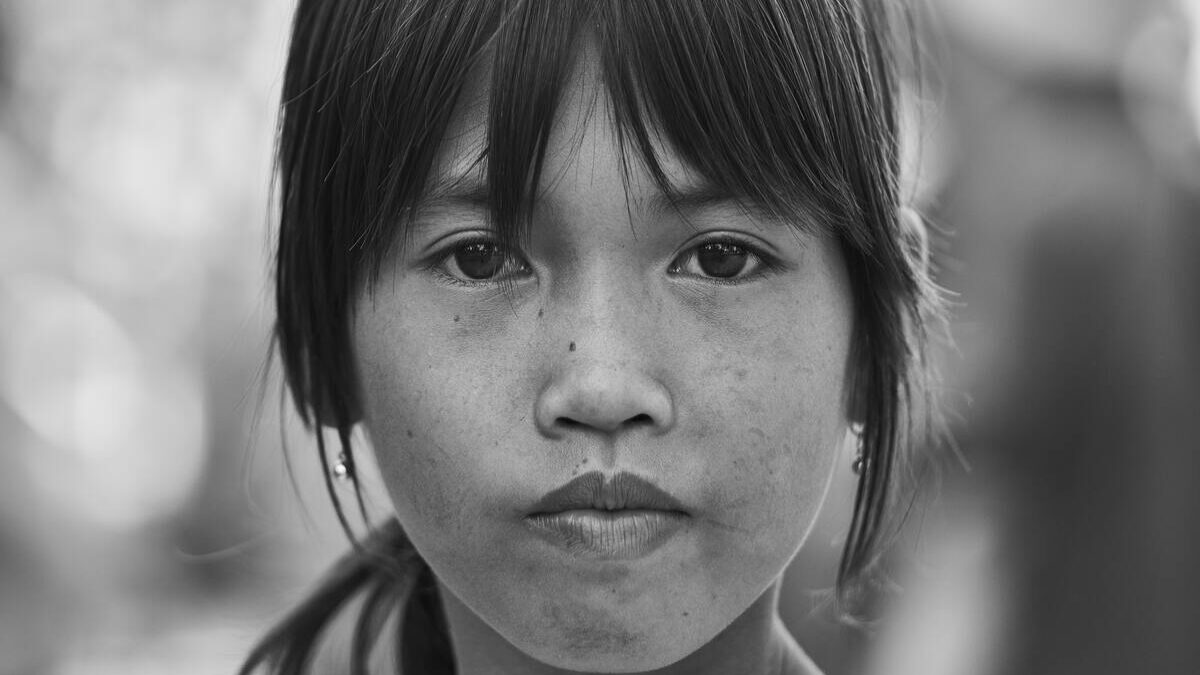Forget “America First” for a moment. Put MAGA aside. Any effort to restore American greatness without putting the children first will fail.
If there was any doubt that kids suffer when their own needs are subjugated to the fears and desires of adults, the Covid experience should have cast it out. For years, children en masse were put on the bottom of the priority list. Children are falling behind in education and key developmental milestones, mood disorders and loneliness are up, and suicide ideation has risen dramatically (including during the Covid era). Families are more broken and dysfunctional than in previous decades, and nearly 400,000 children are in foster care.
We should all agree there is no greatness in sacrificing the welfare of the vulnerable, yet where are the children specifically in today’s list of political priorities? If there was ever a political cause that could get us to sacrifice a bit more, to reach more earnestly across the aisle, and to risk our careers, it should be our children.
Here are eight goals for protecting children and improving their well-being that should be prioritized by government, businesses, other organizations, and individuals.
1. Safeguard Children’s Bodies from Irreparable Harm
Protect kids from damaging transgender surgeries and gender ideology that tries to separate them from biological reality while often alienating children from their parents. Giving cross-sex hormones to physically healthy children and cutting off or “reconstructing” perfectly healthy parts of children’s bodies are inherently destructive and should be considered medical malpractice, especially when performed on patients below the age of consent. Even secular medical boards like those in Sweden and Florida have agreed that the science of gender dysphoria is not settled and the quality of evidence presented in favor of medical interventions is low.
We already have several laws that restrict the liberties of the immature, from drinking alcohol to buying handguns to getting married. Banning irreversible and potentially dangerous medical interventions even when children say they want them is likewise responsible. Given the destructive, risky, and permanent nature of transgender (or even “gender nullification”) surgeries, parental consent is woefully insufficient to put a young girl or boy on such a life-altering course that makes them lifelong medical patients.
2. Protect the Preborn
Congress’s failure once again to pass a bill protecting infants born alive after botched abortions is a national disgrace. But protecting our most vulnerable should go much further than that. Children in the womb should be legally protected from willful destruction with laws that deter parents from seeking abortion and outright ban medical providers, including mail-order pharmacies, from providing them. We must also ensure pregnancy centers are unhindered by red tape and protected from vandalism and terrorism so they can assist mothers in need.
3. Shut Down Child Trafficking
According to ERASE Child Trafficking, approximately 46 children are being trafficked within our borders every day. Stopping child trafficking includes not only quality training for law enforcement in spotting trafficking and supporting victims, but quashing the culture, pervading social media and the fashion and entertainment industries, that sexualizes children.
This is a job not just for government but for businesses, churches, organizations, and individuals. When a business or individual clearly steps over a line (as fashion brand Balenciaga recently did), they need to be held accountable financially (boycotting), reputationally, and if the law permits, legally.
Child trafficking happens across our southern border as well, and a lack of due diligence in processing unaccompanied minors and vetting their sponsors is likely making child trafficking easier. Children, no matter their country of origin, deserve better.
4. Protect Kids from Domestic Abuse and Neglect
Policies in “family services” or “child protective services” must put the welfare of children first. That may seem obvious, but too often, family reunification takes place even when it may not be what’s best for the child, as evidenced by reentry into foster care at a later point, with estimates of reentry ranging between 16 and 40 percent.
Often, parental substance abuse and mental health are the underlying factors that lead to entry into foster care, and such issues may not resolve within the 12 months usually allowed before termination of parental rights. The authors of a cohort study of Texas foster care placements in 2008-2009 wrote that “post-reunification services may help agencies identify substance relapse early on and provide treatment services before the family reaches the point of reentry [into foster care].” This is one way we may be able to reduce the risk of neglect in children.
More broadly speaking, the addiction crisis in the United States has brutally affected children both in and out of foster care. Shutting off the flow of drugs, especially methamphetamines, into our country, supporting the use of drug courts, and refusing to let dealers out on bail could all have positive downstream effects on children.
5. Address the Harms of Social Media Use on Children
According to the Center for Humane Technology, “exposure to unrestrained levels of digital technology can have serious long-term consequences for children’s development, creating permanent changes in brain structure that impact how children will think, feel, and act throughout their lives.” Some concerns are well-aired in public discourse: cyberbullying, the risk of being hooked by a social contagion such as eating disorders or gender ideology, and the threat of being lured into a human trafficking scheme.
However, more banal yet still harmful effects are rampant in addictive platforms such as TikTok and Instagram reels. They are draining our children of productivity, training them to constantly seek attention through likes, comments, and reposts, and promoting short attention spans. By not reigning in children’s use of these platforms, which have been described as “digital fentanyl,” we are hobbling their ability to think clearly, empathize, and have real relationships outside social media.
6. Refuse to Use Children as Human Shields from Disease
Children should not be denied in-person instruction for the sake of mitigating risk to adults from a widespread and very survivable contagion, as was plainly the case through the 2020 and 2021 school years.
We must also protect children’s health and autonomy by refusing to mandate shots (or any other therapeutics) that are not proven to provide sterilizing immunity and do not have a long and thorough safety record. Such mandates or government-led pressure may result in injury to the child, and also decrease trust in medical expertise and preventative measures that do have established records of efficacy and safety.
7. Protect Children’s Right to Socialize and Play
Children have the right to in-person human interaction that includes the full range of human expression. Kids should not be required to cover their faces in normal, day-to-day interactions — even during a declared pandemic. Any abrogation of the right of children to socialize and play normally (in close proximity and involving direct contact), as is critical for their development, must be backed by long-standing, evidence-based guidelines that strongly indicate that the benefits of such measures to children themselves outweigh the harms — including long-term psychological and social harms.
8. Promote Intact Biological Families
Being raised by a biological or adoptive mother and father is the most stable environment for children. As alternative family formations become normalized, it is increasingly unpopular to say, but nevertheless true. Children are designed to be in close relationship with their mother and father, and when they are, they are more likely to thrive.
As the children’s rights organization Them Before Us puts it, we cannot sacrifice children’s needs to adults’ desires. While relationships sometimes break, prioritizing children and the biological relationships they crave before, during, and after forming relationships can make a world of difference. Certainly, children shouldn’t be commodified through surrogacy and egg and sperm donorship simply to fulfill adults’ desire to parent. This is a controversial and nuanced issue to legislate around, but there is ample room for organizations and individuals to stand in the gap for children’s rights and welfare.
It doesn’t matter what political tribe you belonged to before now. MAGA or NeverTrump, fiscal hawk or culture warrior, D.C. insider or outsider, this is where the battle is. Lines are now being drawn that will endure for generations to come. We must make sure they are the right ones.









